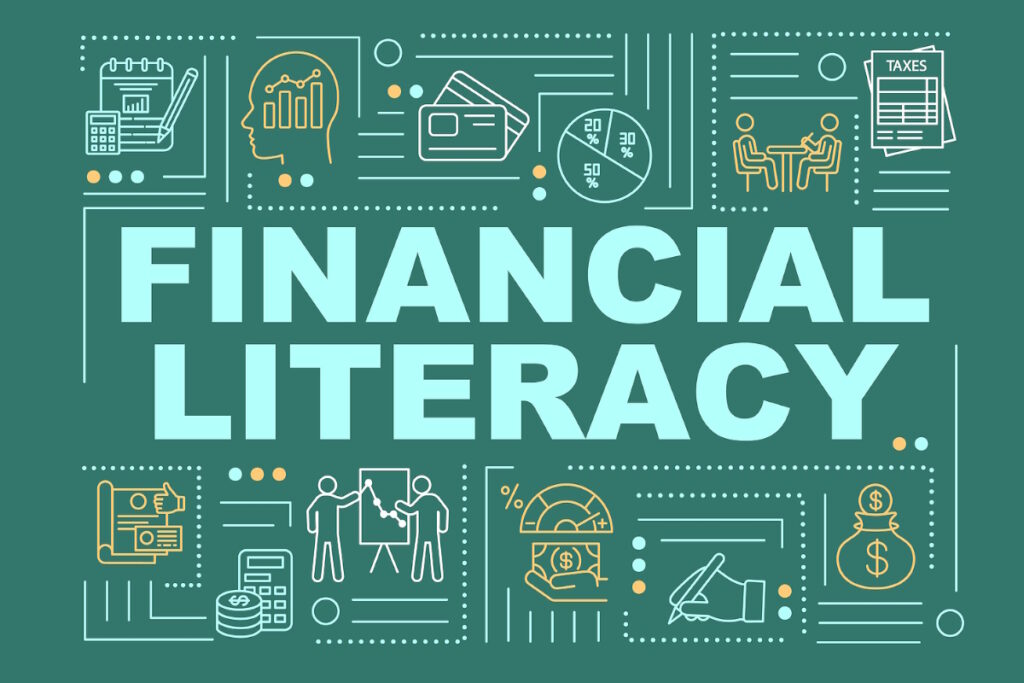Financial literacy is important to the Dallas Hebrew Free Loan Association. Our entire mission of providing no interest, no fee loans is built on offering members of our Jewish community a financially smart alternative to high-interest credit and an affordable and dignified way to navigate financial challenges.
Since our loans are made possible through donations, we also see philanthropic literacy as an important part of overall financial literacy. As our no interest loans made possible through gifts are repaid, the funds are lent out again and again, continuing to make a difference in so many people’s lives. Since funds are recycled, donations have a lasting impact, which is what we all hope to do with our charitable giving. To mark National Financial Literacy Month, we’ve asked our partners at the Dallas Jewish Community Foundation to share how philanthropic literacy is a component of financial literacy, and how both can play an important role in fostering a culture of giving and social responsibility.
In the realm of personal finance, the term “financial literacy” has gained significant attention in recent years, emphasizing the importance of understanding concepts such as budgeting, investing, and debt management. However, a sometimes overlooked, yet important, aspect of financial literacy is philanthropic literacy. Philanthropic literacy includes the knowledge and techniques needed to engage in effective and meaningful charitable giving.
Understanding Philanthropic Literacy
Philanthropic literacy goes beyond merely donating money to charitable causes; it involves a deep understanding of the social issues at hand, the effectiveness of various charitable organizations, the impact of one’s contributions, and the charitable vehicles that can be used. Individuals with philanthropic literacy consider the impact their charitable gifts can have, both on the recipient organization and on the donor’s own finances. They assess the needs of their communities, identify areas where their resources can make a difference, and strategically allocate funds to maximize their impact. Furthermore, individuals with philanthropic literacy are able to make their charitable gifts in a tax-advantaged way.

The Role of Financial Literacy
Financial literacy can also provide the foundation for effective philanthropy. Individuals who are financially literate understand how to manage their resources wisely, budget effectively, and plan for the future. This financial stability enables them to allocate a portion of their income towards charitable giving without jeopardizing their own financial well-being. Moreover, financial literacy empowers individuals to make informed decisions about their charitable contributions, ensuring that their donations are sustainable and aligned with their long-term financial goals.
The Interplay Between Philanthropic and Financial Literacy
Financial literacy equips individuals with the tools to generate wealth, while philanthropic literacy guides them in using that wealth to create positive social change. By integrating both forms of literacy, individuals can leverage their financial resources to address pressing social issues and contribute to the common good. Furthermore, philanthropic endeavors can also have financial benefits, such as tax incentives for charitable donations, which financially literate individuals can navigate effectively.
Two of our favorite tools that both better society and reduce a tax burden are:
1. Donor advised funds (DAFs)
DAFs are like charitable checkbooks. A donor gives money to a DAF-sponsoring organization, like the Dallas Jewish Community Foundation, and then is able to recommend grants to other nonprofit organizations from the DAF. DAFs are appropriate for anyone, but they may be especially helpful from a tax perspective to someone who undergoes a major liquidity event.
2. Qualified Charitable Distributions (QCDs)
Starting at age 70 ½, each IRA owner may make up to $100,000 in charitable donations from their IRA. Though normally IRA distributions are taxed, QCDs can pass directly to a nonprofit tax free. And for those who are at least 73 years old, QCDs count towards their required minimum distribution (RMD) for the year.
Note that QCDs cannot be put into a DAF. QCDs may be given directly to a nonprofit organization, put into an endowment fund, or put into a scholarship fund.

Philanthropic literacy is an essential component of financial literacy, enabling individuals to use their financial resources to make a positive impact on society. By integrating both forms of literacy, individuals can cultivate a sense of social responsibility, empathy, and altruism, contributing to the greater good while also securing their own financial well-being. As we strive towards a more equitable and sustainable world, fostering a culture of giving through philanthropic literacy is imperative.
For more information on donor advised funds, qualified charitable distribution IRAs or other philanthropic vehicles, contact Mona Allen or Risa Gross at the Dallas Jewish Community Foundation. For more information on ways to support the Dallas Hebrew Free Loan Association, visit our Donate page.

